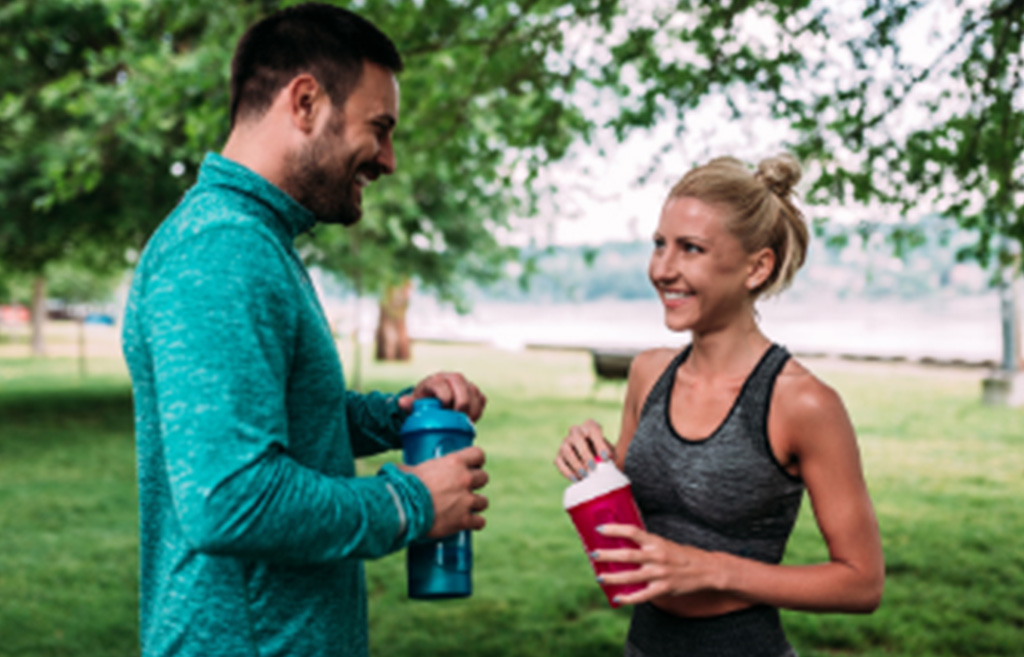Every cell in the human body relies on water to function. The harder you work those cells, the more important the hydration. Whether you’re a professional athlete or someone who hits the home gym after work, water is the key to performance.
What Role Water Plays in Health
The body is made up primarily of water, so it’s not surprising that proper hydration is necessary to maintain good health. Water:
- Protects the organs
- Keeps tissue moist – especially in the mouth, eyes and nose
- Helps remove waste material
- Reduces the burden on the kidney and liver
- Regulated body temperature
- Lubricates joints
- Carries nutrients and oxygen to cells
- Helps the muscles to move more efficiently
The last four are especially important during exercise. Movement causes the heart, your most important muscle, to pump harder in order to push blood and oxygen to the other muscles in the body.
Without it, those muscles cannot work efficiently and your stamina suffers. Staying hydrated means the heart doesn’t have to work as hard, too, and that improves your energy and performance levels.
How to Hydrate During a Workout
Balanced intake keeps you hydrated, and that means drinking water before, during and after exercise. For big events like a marathon, you should start drinking water at least 24 hours before you run.
Even if you are just having a moderately tough workout at home, try to drink at least eight ounces of water every 20 minutes while you exercise. Any more is likely to make you feel bloated, but less will likely mean you are not well hydrated.
If you are exercising for longer than 40 minutes, it might be necessary to switch out your water for a sports drink. The sports drink helps your cells get water faster because of the added salt and sugar, which replace electrolytes lost during exercise.
How to Know if You are Not Your Getting Enough Fluids
The most common sign of dehydration is thirst. If you get thirsty, you are already dehydrated. You may also feel:
- Dizzy
- Dry mouth
- A Headache
- Muscle cramps
- Dry skin
People who are dehydrated stop sweating, too. Lack of sweat means your body temperature will start to rise until you overheat. This is a dangerous condition that can cause injury before you realize it is happening. It’s far better to err on the side of too much hydration rather than too little.
For additional tips on hydration, nutrition, stretching or ANY fitness related topic, contact one of the professionals on the Premier Fitness Source team. Our certified fitness experts will ensure you get the most productive and safe workout possible.
Premier Fitness Source – Committed To MORE Than Your Satisfaction.

